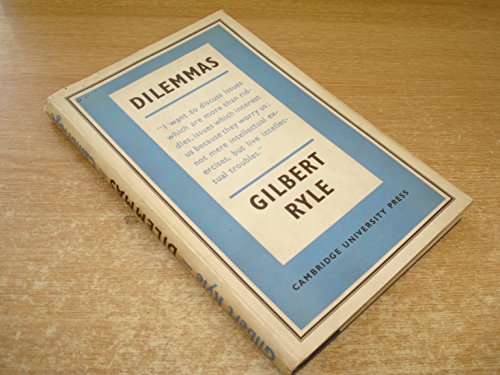
Inhaltsangabe
Professor Ryle's discusses pairs of theories, and to show that the either/or they insist on is a false dilemma.
Die Inhaltsangabe kann sich auf eine andere Ausgabe dieses Titels beziehen.
Weitere beliebte Ausgaben desselben Titels
Suchergebnisse für Dilemmas: The Tarner Lectures 1953
Dilemmas : The Tarner Lectures 1953
Anbieter: Better World Books, Mishawaka, IN, USA
Zustand: Good. Former library copy. Pages intact with minimal writing/highlighting. The binding may be loose and creased. Dust jackets/supplements are not included. Includes library markings. Stock photo provided. Product includes identifying sticker. Better World Books: Buy Books. Do Good. Artikel-Nr. 48931908-6
Gebraucht kaufen
Versand innerhalb von USA
Anzahl: 1 verfügbar
Dilemmas: The Tarner Lectures 1953
Anbieter: ThriftBooks-Dallas, Dallas, TX, USA
Hardcover. Zustand: Fair. No Jacket. Readable copy. Pages may have considerable notes/highlighting. ~ ThriftBooks: Read More, Spend Less. Artikel-Nr. G0521061776I5N00
Gebraucht kaufen
Versand innerhalb von USA
Anzahl: 1 verfügbar


